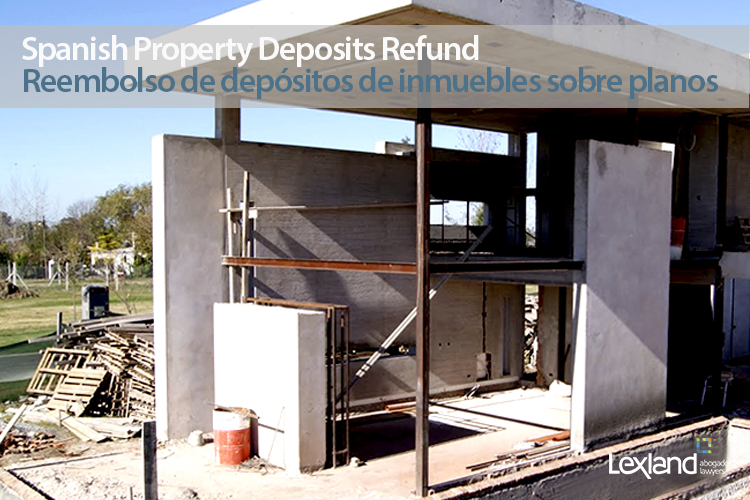¿Ha sido nombrado heredero de bienes situados en España?Have you been appointed as the heir of assets located in Spain?
Es bastante frecuente que los propietarios de bienes inmuebles en España no tengan formalizado un testamento específico para estos bienes en el momento de su fallecimiento. Esto significa que sus herederos han de comenzar un procedimiento largo y costoso para poder firmar la Escritura de partición y adjudicación de herencia.
En los casos en los que un ciudadano británico propietario de bienes inmuebles, participaciones sociales o cuentas bancarias en España fallezca, los siguientes documentos le serán solicitados por parte de las autoridades españolas:
- Poder de representación otorgado por los herederos a favor de los Abogados que van a participar en la partición de la herencia
- NIE de los herederos (su Abogado los puede solicitar a través de un poder)
- Certificado de defunción (que deberá ser Apostillado)
En caso de que no existiera un testamento en España, los siguientes documentos le serán solicitados:
- Grant of probate (certificado de herederos) debidamente Apostillado
- Testamento inglés debidamente Apostillado
Una vez que estos documentos hayan sido reunidos, un certificado de últimas voluntades será solicitado al Registro de Actos de Ultima Voluntad en Madrid. Este certificado nos informará sobre si se otorgó testamento en España y, en caso afirmativo, ante qué Notario.
Con esta información, podemos solicitar copia del testamento al Notario ante quien se otorgó. En caso de que no hubiera testamento en España, el testamento inglés deberá ser traducido al español por un traductor jurado y el caudal relicto será dividido conforme a las disposiciones testamentarias incluidas en el mismo.
Con el certificado de actos de última voluntad, una vez que los herederos han proporcionado la información relativa a cuantos bienes conforman el caudal hereditario, se puede otorgar la escritura de partición y adjudicación de herencia.
Le informamos que existen algunas cuestiones que se deben tener en cuenta, tales como la obligación de liquidar el impuesto de sucesiones y donaciones en los seis meses desde la fecha que consta en el certificado de defunción, so pena de que se le imponga un recargo del 5%. Otra diferencia notable con el Reino Unido es que no hay exenciones para los cónyuges.
Una vez se ha abonado el impuesto de sucesiones y donaciones, la escritura puede ser inscrita en el Registro de la Propiedad y con este paso, los bienes quedan oficialmente registrados a su nombre.
Esperamos que este artículo le haya resultado útil y le invitamos a solicitar una primera cita gratuita y sin compromiso al objeto de informarse sobre el procedimiento de adjudicación y partición de herencia.
It is quite common for owners of Real Estate property in Spain to not have a Spanish Will in place at the time of their death. This means that their beneficiaries will be obliged to go through a long, expensive and tedious process in order to be able to formally inherit and use the estate.
In the event that a UK citizen owner of real estate assets, company shares or bank accounts in Spain passes away, the following documents will be required by the Spanish authorities (Notary, Central Registry of Last Wills, your Solicitor etc.,):
- Power of attorney to be granted by the beneficiaries in favour of the Solicitor who is going to deal with the partition of the estate
- NIE number of the beneficiaries (please note that the Solicitor may apply for these by means of power of attorney)
- Death Certificate (which must be duly Apostilled by the Foreign and Commonwealth Office).
If there is no Spanish Will in place, the following documents will also be required:
- Grant of Probate (which must be duly Apostilled by the Foreign and Commonwealth Office)
- English Will (which must be duly Apostilled by the Foreign and Commonwealth Office).
Once these documents have been gathered, a certificate will be requested to the Central Registry of Last Wills in Madrid. This certificate will contain the information related to whether there is a Spanish Will in place or not and if so, the Notary before whom it was granted. This Registry will ensure that the Will according to which the estate will be divided, is in fact the last Will. If there is Spanish Will in place, its copy shall be requested to the Notary. However, if there is no Spanish Will, an English Will shall be translated by an official sworn translator and the estate will be divided according to the dispositions set beforehand.
Once the certificate of last Will is available and the beneficiaries have provided the information on how many assets the deceased had in Spain (in order to ensure that these are all included and correctly described in the Deeds), the Deed of partition and acceptance of the inheritance may be signed.
We inform you that there are certain matters which you must take into account, such as the fact that there is a period of 6 months from the date of death in which Inheritance Tax forms must be submitted and paid. Failure to do so will entail a 5% surcharge on the tax due. Another important difference between UK and Spain is that in Spain there is no allowance between spouses.
When inheritance tax has been paid, the Deeds are ready to be registered at the Land Registry and once this final step has been taken, the property will officially pass into your name.
We trust this article has been useful for the purposes of explaining the inheritance procedure in Spain. We welcome you to request a no obligation free initial consultation with our expert Lawyers, who will be happy to solve any query related to any inheritance matter. Kindly note that there are different scenarios to take into account, with aforementioned rules being general and which cannot substitute tailor made advice provided to you on the basis of your own specific personal circumstances.












